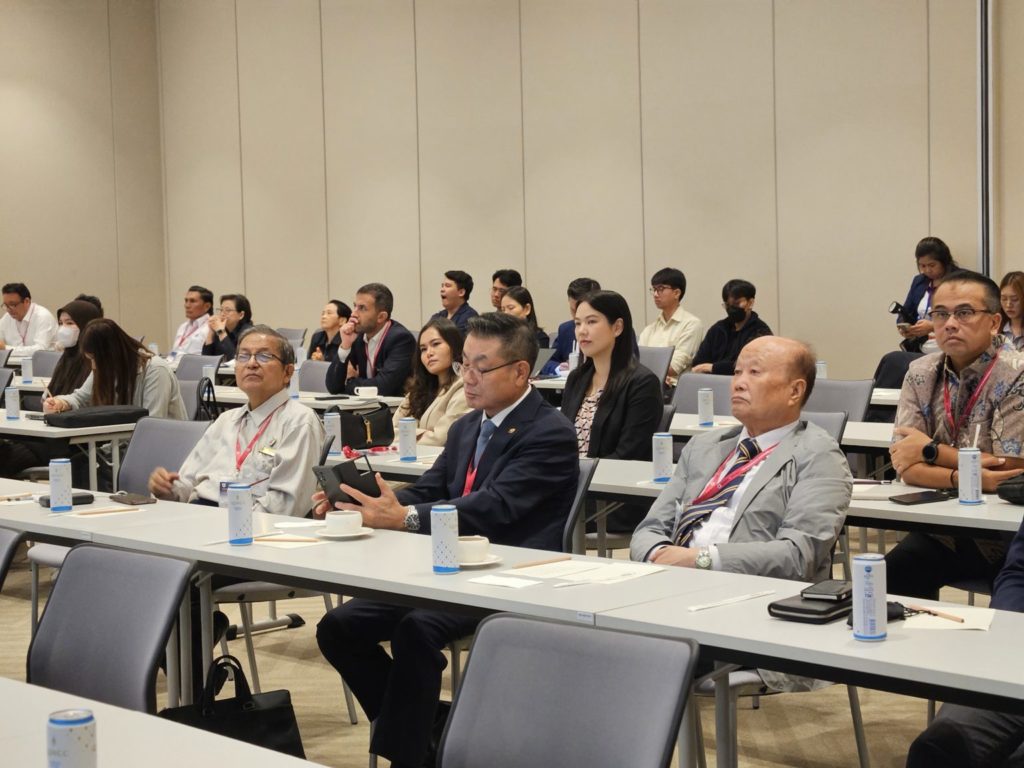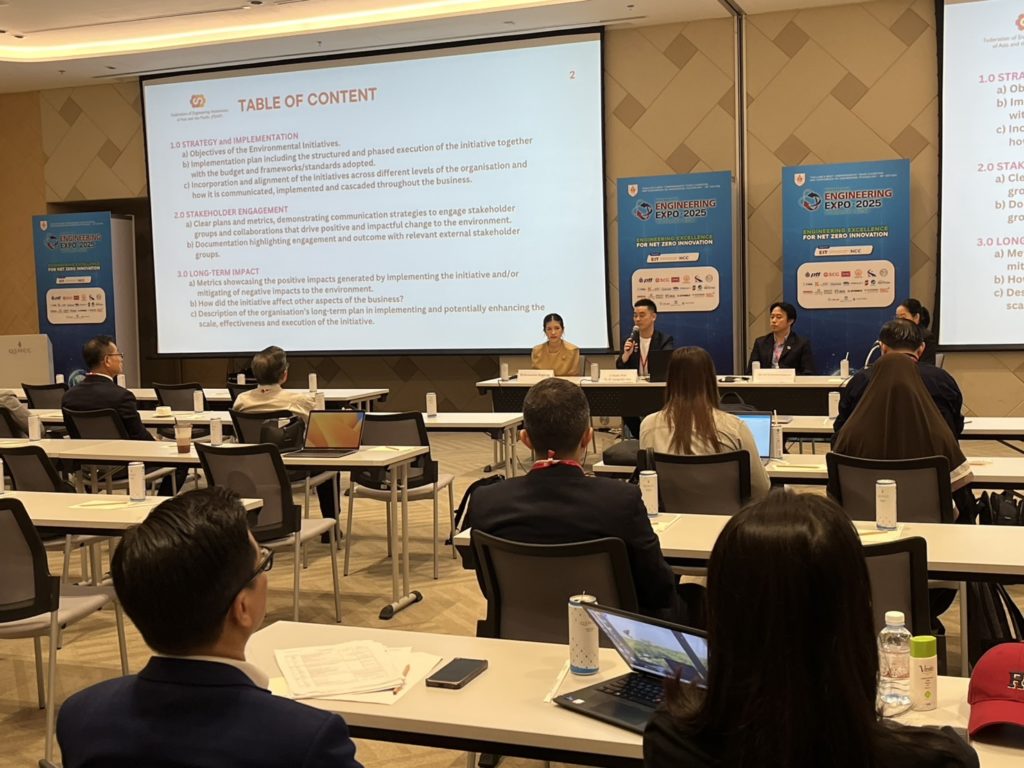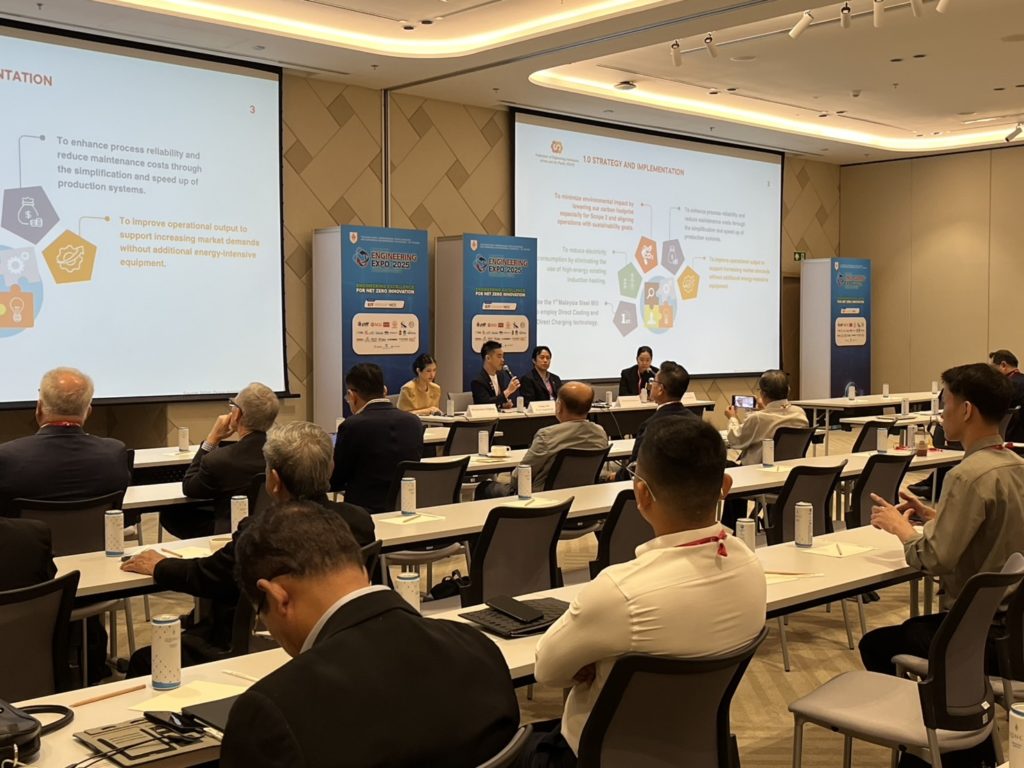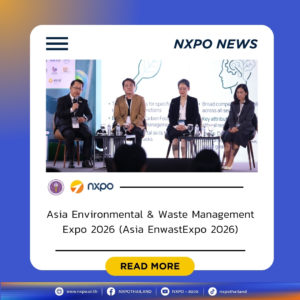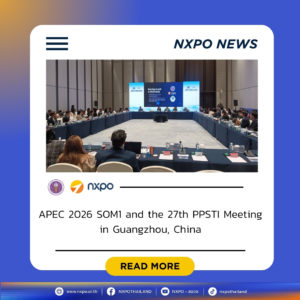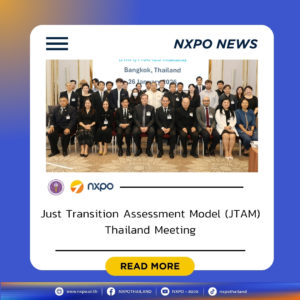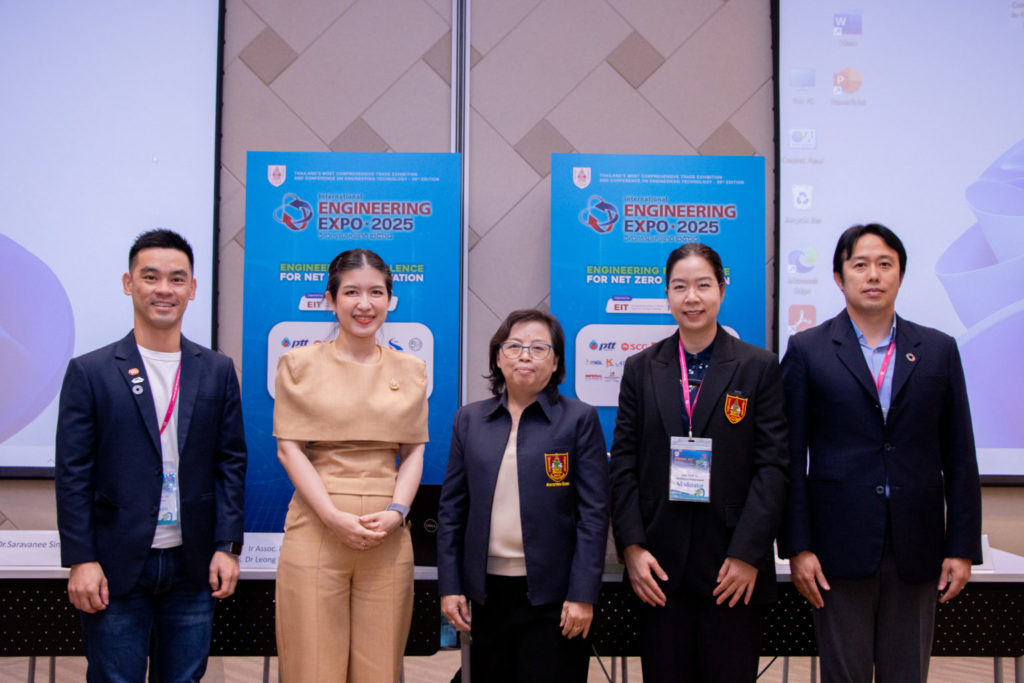
Dr. Saravanee Singtong, Director of the Sustainability Policy Division at NXPO, participated in the 33rd General Assembly and the 8th Distinguished Lectures Programme of the Federation of Engineering Institutions of Asia and the Pacific (FEIAP). She joined a panel discussion titled “Strategic Directions from Industry and Professional Bodies Toward Net Zero,” alongside distinguished panelists such as Assoc. Prof. Ir Ts. Dr. Leong Kah Hon from Universiti Tunku Abdul Rahman, Malaysia, and Asst. Prof. Krissachai Sriboonma from King Mongkut’s University of Technology North Bangkok (KMUTNB). The session was moderated by Asst. Prof. Suchanya Posayanant from KMUTNB. Held on 24 July 2025 at the Queen Sirikit National Convention Center, the event was hosted by the Engineering Institute of Thailand under H.M. the King’s Patronage. It aimed to foster knowledge exchange and promote the role of engineers in advancing sustainable technologies across the Asia-Pacific region.
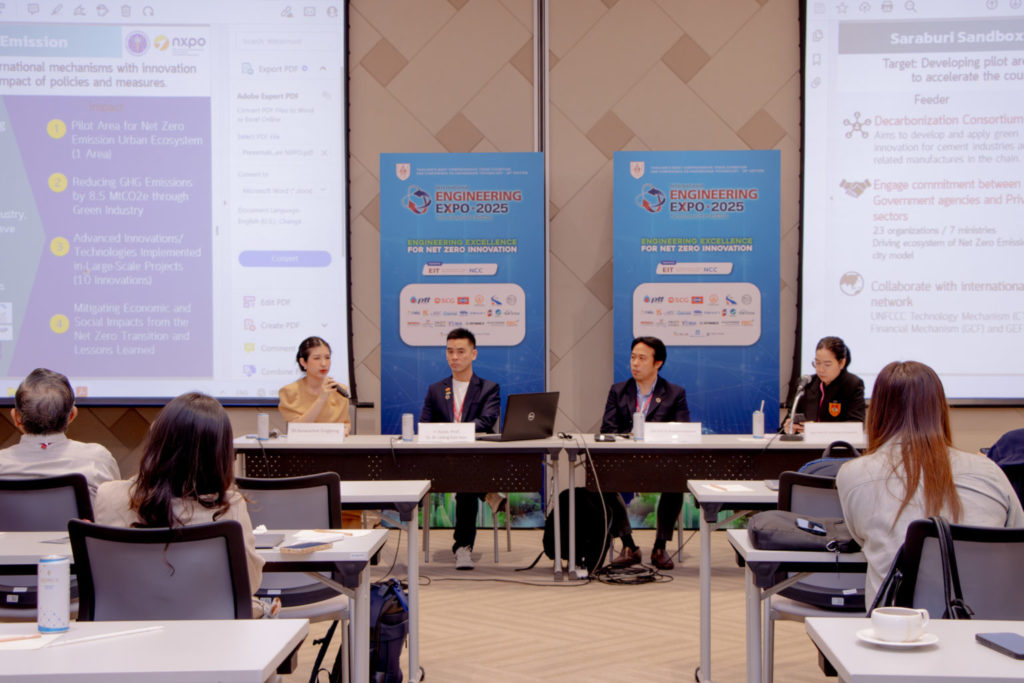
During the discussion, Dr. Saravanee shared NXPO’s strategic approach to supporting Thailand’s industrial transition toward net-zero emissions. She highlighted collaborative initiatives with key partners to foster innovation ecosystems that enable green transformation in business and industry. A notable example is the joint development of the Green Enterprise Indicator (GEI) in collaboration with the Office of Small and Medium Enterprises Promotion (OSMEP), the Management System Certification Institute (Thailand) (MASCI), the Thai Industrial Standards Institute (TISI), and the Federation of Thai Industries (FTI). The GEI is on track to become a national benchmark, helping businesses align with Environmental, Social, and Governance (ESG) principles and drive the development of green supply chains.
Dr. Saravanee also cited a collaborative project with the Thailand Institute of Scientific and Technological Research (TISTR), which extends the Tan Diao model to create a digital platform supporting circular waste management. The platform integrates greenhouse gas emissions reduction with local economic development and forms part of the Saraburi Sandbox initiative. Within this sandbox, NXPO also partners with the Thai Cement Manufacturers Association (TCMA) to explore advanced CO₂ management technologies. This includes a techno-economic feasibility study on converting CO₂ and hydrogen into methanol—an effort that informs future technology investments and connects with financial mechanisms under the United Nations Framework Convention on Climate Change (UNFCCC).
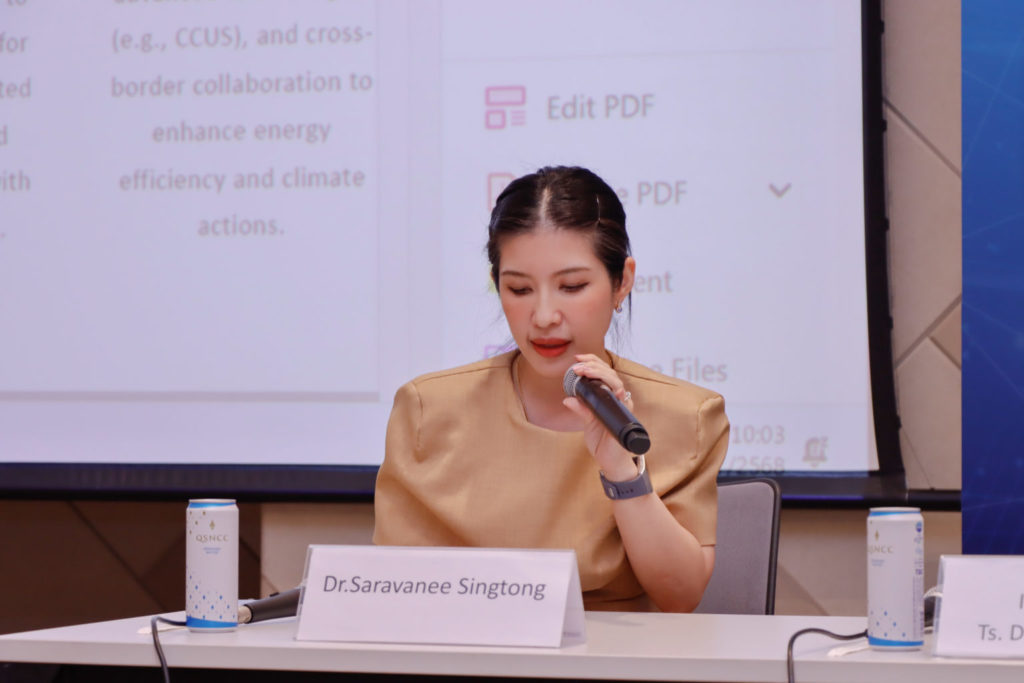
In conclusion, Dr. Saravanee underscored NXPO’s engagement on the international stage, particularly at the Conference of the Parties (COP) meetings, where it represents Thailand in negotiations on climate technology and research alongside the Department of Climate Change and Environment (DCCE). She emphasized the importance of leveraging both technology and financial mechanisms under the UNFCCC to drive the country’s transition to a net-zero future.
